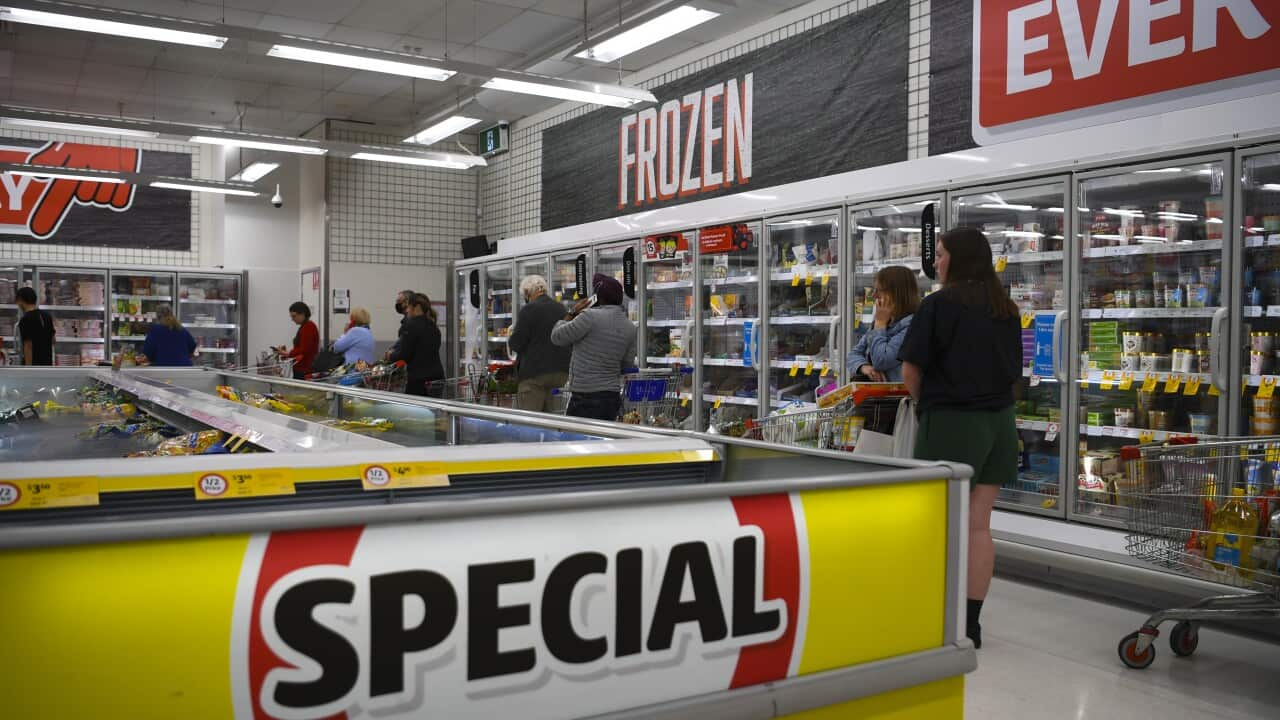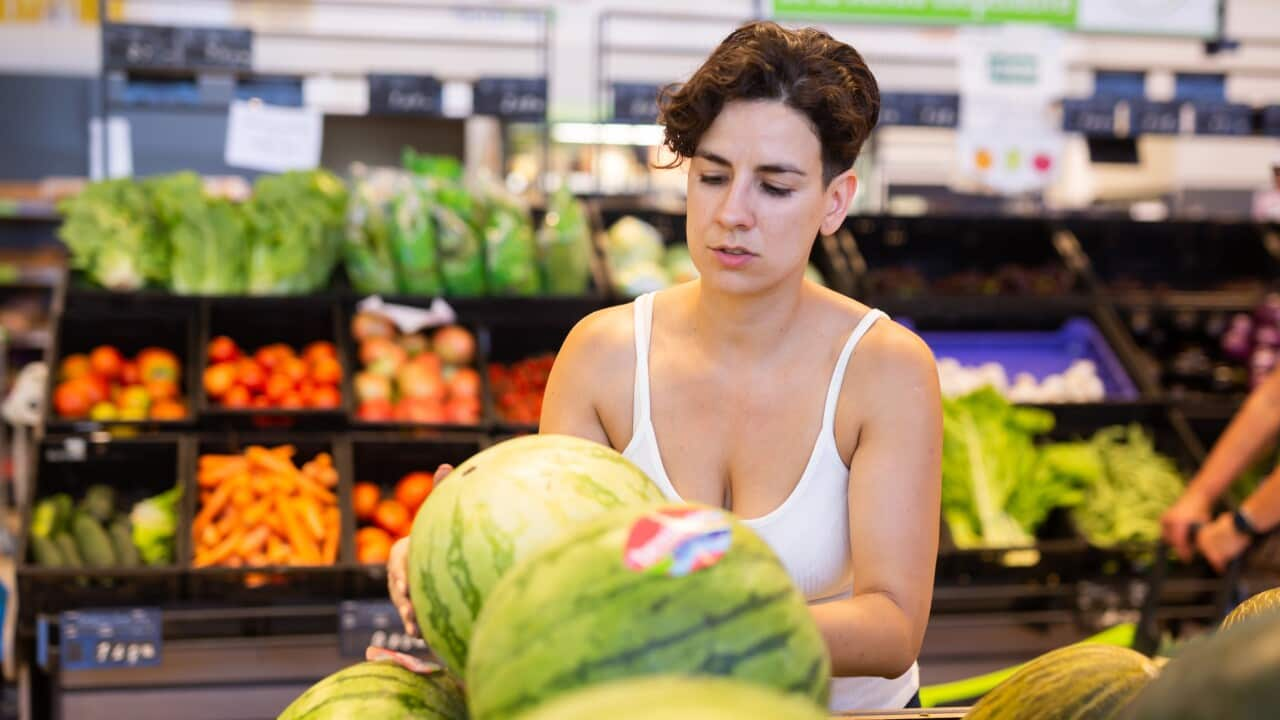You're at the supermarket and see a yellow ticket advertising a product as a special.
But on a closer look you find that the old price was actually lower than the new promotional price.
This is just one of the tactics used by supermarkets offering "bogus promotions" to make shopping appear more affordable, according to consumer action group CHOICE.
In a new survey, CHOICE found more than 80 per cent of shoppers it spoke to said some specials or promotions offered by Coles and Woolworths made it difficult to know if it was a genuine discount.
"You look down an aisle with tickets of different colours which are so confusing," one of the respondents told CHOICE.
"All I want to know is if the price is acceptably discounted. The original prices shown on discount tickets are so small you often have to examine the ticket with a magnifying glass."
CHOICE senior campaigns and policy advisor Bea Sherwood said supermarkets were using a number of "confusing" promotional practices that made it very difficult for customers to work out if they’re saving money on their groceries or not.
"Consumers deserve clear and transparent pricing so they can be sure they’re actually getting value for money. We need new rules to force the supermarkets to provide this transparency, as well as powers for the regulator to make sure the supermarket giants are playing fair," Sherwood said.
Here are some of the tactics you may have noticed in the supermarket aisle.
'Was/Now' pricing claims
This is when supermarkets reduce prices from an artificial high point and the new price is offered as a sale.
One example identified by CHOICE was a Coles store in Marrickville in Sydney, which advertised a Palmolive Shower Scrub Coconut Butter 400ml as 'Down Down' at $4.50, claiming the price was $6.49 in September 2017.
But this was over five years ago and over three-and-a-half years before the Coles Marrickville store opened, it said.
According to CHOICE, supermarkets can theoretically select a point in time when the price of a product was artificially high and ignore other fluctuations in price since then, including times when the product was cheaper.
"The result is that a product may be more expensive than it was in the past, but supermarkets are still able to present this as a discount to consumers," CHOICE said in a submission to the Senate Select Committee on Supermarket Prices.
"We also have concerns about the appropriateness of using natural seasonal variations in pricing to make was/now discount claims."
When the sale price is the same as the old price
Another example is when supermarkets display a "was" price but the ticket below the sale sticker is the same as the current sale price.
"Consumers are drawn to the special sticker and are led to believe they are receiving a discount when in fact, the price does not appear to have changed."
One survey respondent described seeing a product on the shelf as having a special tag but on closer inspection of the original price, found the price was the same.
"The item was not on 'Special'," they said.
Labels used when an item is not on special
You've probably seen tags that look like a product is on special but it turns out it's not.
These are sometimes labelled as "while stocks last" — which makes it look like a discount, but it's the regular price, CHOICE says.
"A person not paying close attention could be easily misled into thinking the product is on sale," it said.
Other tags can include "fresh special", "new" or "introductory price" — words which may mislead customers into thinking they're getting a bargain.
One example provided by CHOICE was a Woolworths Metro in Sydney's Marrickville on 4 February 2024, where the tags "low price" were used across a range of dried food products, though it was unclear on what basis the price was considered low.

A display of nut products at Woolworths Metro Marrickville, Sydney, on 4 February 2024, with labels that may mislead consumers into thinking they're getting a discount, according to CHOICE. Credit: CHOICE
Loyalty programs that lock shoppers out
If you're not signed up to a loyalty program you may feel like you're missing out on bargains.
That's because many supermarkets are offering member-only pricing that requires people to join programs to get offers.
The practice though, locks out non-members from discounts and special offers.
CHOICE says everyone should have access to food and essential items at the lowest possible price.
"People are sick of feeling tricked by specials that aren't specials, and feeling pushed into membership programs and multi-buy deals where they end up buying more than they need," Sherwood said.
"This kind of behaviour from the major supermarkets is simply not acceptable and is particularly harmful in a cost-of-living crisis."
CHOICE has made a number of recommendations to the federal government in a submission to the supermarket pricing inquiry.
Among other things, it wants misleading promotional tactics to be banned, unit pricing requirements to be strengthened and enforced, and supermarkets to be compelled to publish historical pricing information to allow the tracking of price changes.
A Woolworths spokesperson told SBS News in a statement: "We work hard to ensure we comply with all Australian consumer laws and communicate our prices clearly and accurately through our catalogue, in store and online".
Coles said in a statement: "We take clear and accurate pricing information very seriously and always aim to ensure that our specials represent value for our customers."





